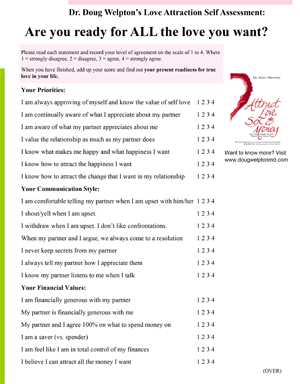“Judge not, that ye be not judged. For with what judgment ye judge, ye shall be judged…” (Matthew 7:1-2)
Kelly had a problem trusting her mother, Belle. Growing up she felt like her mother manipulated the truth. When her mother was dishonest she felt queasy in her stomach even though she couldn’t confirm the deceit. As a consequence of being deceived, Kelly’s sense of reality was changeable. She wasn’t sure what to believe or what she could count on.
Kelly’s family is enmeshed; they are overly involved with each other. They can’t leave one another alone, or get out of each others way. Belle is the younger sister. Donna, although just a little older, has always acted superior to Belle. Donna controls through being judgmental. She excels at criticizing Belle and telling her what’s wrong with her.
Belle sees herself as a victim. She pulls Kelly, her loyal daughter, to her side. By playing the victim she gets Kelly to stick up for her, even to take care of her. Kelly has few if any memories of her mother looking after her as a child, or giving her the guidance mothers usually give daughters. Instead, Kelly had to learn to do everything for herself.
While growing up Kelly even looked after her parents by cooking, cleaning up, and keeping house. Her mother was used to being the younger sister who was coddled. Kelly typically took her mother’s side when she argued with Donna. She knew her mother had a hard time standing up to Donna on her own.
Belle’s husband had died a few years ago when Belle had turned seventy. He left her without much money. Belle had no idea what to do. She had never worked. She was used to being taken care of. In need of more money to support a lifestyle that was now beyond her means, Belle turned in desperation to Donna, who was well off. Belle also received financial help from Kelly and her husband.
Belle was afraid of her older sister. Donna had always gone one-up and took pleasure in demeaning her younger sister. Donna typically got the last word, even more so since Belle now depended on her for money. For years Belle and Donna fought like bitter enemies over pulling other people to their side. They triangulated Kelly between them.
Maxine is Donna’s daughter-in-law, married to Donna’s son. Maxine’s marriage was rocky, and she held Donna responsible for most of the marital quarrels. Donna was critical of Maxine from the get-go, finding fault with her as a wife and making her opinions known to her son in front of Maxine. It would be safe to say that Maxine intensely disliked Donna.
When Maxine’s husband left her to file for a divorce, Maxine turned angry and vengeful. She learned that Donna’s husband, who had died recently, had surreptitiously carried on an affair. Maxine phoned Donna in the middle of the night. In a disguised voice she pretended to be the “other woman,” and told Donna she was going to “get her.” After several such phone calls Donna discovered it was Maxine who was making these calls. Donna immediately told Belle and Kelly that Maxine was the culprit.
The following night Maxine phoned Belle. Seeing it was Maxine calling, Belle did not pick up the phone. She did tell Kelly that Maxine had phoned her and that she did not answer. Without thinking more about it, Kelly mentioned this fact in front of Donna when she and her mother were at Donna’s house the following day.
Donna went into an uproar! She was furious with Belle for not having shared this information with her already. Belle turned on Kelly. “You’re a liar!” she screamed at her daughter. Kelly was dumbstruck. She had told the truth. Belle carried on hysterically until Kelly left Donna’s house to escape the verbal onslaught from her mother for having “lied.”
The next day when Kelly and her mother were alone, Belle apologized to Kelly for calling her a liar. Belle said it was the only thing she could do to protect her relationship with Donna. Kelly knew how afraid her mother was of Donna. As she heard this explanation, however, Kelly felt her mother wasn’t doing much to protect their relationship.
There was, however, a positive consequence from this uproar. At the moment when her mother apologized to her for calling her a liar a light bulb lit up for Kelly. For the first time in her life she got confirmation of her mother’s outright lying. It was the only time she could remember that her mother admitted straightforwardly to deceit in their relationship. When Kelly had previously felt many times while growing up that she was being deceived she never got her mother’s validation.
Kelly felt like she had been given a new lease on life. She felt, she said, like she was “born again.” For the first time she felt like her reality wasn’t “screwed up.” She now understood why she never knew what to believe while growing up, and why her sense of reality was unsteady.
Kelly also felt enlightened as to why she was so open and honest with her own children, often to a fault. She realized she told them too much, more than they needed to know on many occasions, as compensation for how she had been kept in the dark. She vowed to do a better job going forward of discriminating as to what to tell her children. She would pay careful attention to what was age appropriate for them to know.
Kelly worked with me on her boundaries. She learned how to take care of herself by trusting and protecting her own reality. Her reality was defined as: how she looked physically, what she thought and felt, and her behavior– what she had done or not done.
She learned to use a filter in her mind to discriminate about the thoughts that were expressed to her by other people. With her mother, for example, she used her filter to determine whether what her mother said to her was true or not true. Her truth, like everyone’s, is determined by what is true for her. Shakespeare described the process of defining our truth in Laertes’ advice to his son Polonius:
“This above all: to thine own self be true,
And it must follow, as the night the day,
Thou canst not then be false to any man.” (Hamlet)
With this filter established in her mind, Kelly checked out whether what her mother or anyone else said agreed with her reality. She accepted into her mind what others said when it agreed with her reality. When she accepted a thought she had feelings about it and dealt with those feelings. If she determined a thought was not true, she did not accept it into her mind as her reality. If she was not clear whether a thought expressed to her was true or not true, she kept it in limbo until she made that decision. Then, she either accepted it into her mind as a reality or she rejected it. At the same time Kelly acknowledged that the thought she rejected could be true for the speaker, but that did not make it true for her.
By establishing and reinforcing these boundaries Kelly learned not to let anyone else tell her what she should think or feel. Kelly recognized that she and her mother had different realities. Each had her own.
She came to realize that each of us creates our own reality. We do not see things as they are; we see things as we are. The world we see reflects who we are. Each of us lives in our own world. Our worlds overlap when we share a common reality with another person. When we do not, our realities are different.
Even in love relationships we have different realities, which can cause pain when we remember things differently, when we perceive the same event differently, or when we feel differently about an event. It makes no sense to argue with another person about different memories, different perceptions, or different feelings because we each create our own. Loving another person does not eradicate our individuality, or our differences.
Kelly said she discovered a new found freedom when she realized that having a different reality from her mother’s did not mean that she had stopped loving her mother. In fact, she felt more comfortable loving her mother when she accepted their differences.
Having good boundaries about her reality was a totally new concept and experience for Kelly. It changed her life. She was now able to discriminate that it did not match her own reality when her mother had called her a “liar.” Since she did not accept the thought into her mind, she no longer had to wrestle with feelings about it. Instead, she saw this accusation as her mother’s reality at that moment, probably even as a manipulation her mother was using for self-protection–nothing more, nothing less.
Kelly did not respect her mother for having falsely accused her of being a liar.
She did, however, develop a new respect her mother when, for the first time ever, she admitted to Kelly that she had lied when calling Kelly a liar. How often, Kelly asked herself, do people defend themselves by accusing you of the very thing they are doing? Her mother had lied by calling her a liar. She said that politicians came to her mind, even Presidents, but we decided not to go there.
Instead Kelly quoted Christ from Matthew (7:3): “And why beholdest thou the mote that is in thy brother’s eye, but considerest not the beam that is in thine own eye?”
Kelly asked me, “Doesn’t Christ’s question apply to sisters too? …And also to mothers and daughters?”
I nodded yes.
I replied, “When you own the beam in your own eye you change your life.”


